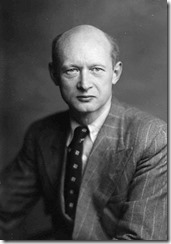This week in the Great Books Project we pass the 4,000-page mark in the Science and Mathematics category. Just typing that number exhausts me.
Here are the readings for the coming week:
- The Brothers Karamazov by Fyodor Dostoevsky, Part II , Book V (GBWW Vol. 52, pp. 114-153)
- “The Plurality of Persons in God” by St. Thomas Aquinas (GBWW Vol. 17, pp. 167-171)
- “Arcades” by John Milton (GBWW Vol. 29, p. 25-27)
- “Of Sumptuary Laws” and “Of Sleep” by Michel de Montaigne (GBWW Vol. 23, pp. 172-174)
- The Nature of Life by C.H. Waddington, Chapters 3-5 (GBWW Vol. 56, pp. 715-749)
- Provincial Letters by Blaise Pascal, Numbers X-XII (GBWW Vol. 30, pp. 71-99)
For some reason this week’s reading list seems pretty undemanding. I guess it’s because with the exception of St. Thomas, all these authors have a conversational style. Well. I guess Milton’s poetry isn’t very conversational, but the nonstop classical references don’t really faze me.
Here are some observations from last week’s readings:
- The Brothers Karamazov by Fyodor Dostoevsky, Part II, Book IV: How convenient for Alyosha that he already has his wife picked out before he even leaves the monastery. I guess it’s only fair for something to be easy for him considering the tangled mess his family has created. It’s too bad the officer humiliated by Dmitri was too proud to accept the money from Katerina. He could have healed nearly all the broken relationships in his family with its help.
- “The Divine Persons” by St. Thomas Aquinas: St. Thomas follows Boethius’s definition of “person” as “an individual substance of a rational nature,” and that it is different from hypostasis or essence. He goes on to argue that the term is rightly applied to God, and that it signifies relation within God. Arguing by analogy, he concludes that the term “person” means one thing in general, but something more specific when applied to God.
- “Il Penseroso” by John Milton: The opening of this poem is very similar to that of “L’Allegro,” with the attempted banishing certain thoughts. The difference is that latter poem tries to banish melancholy, whereas the former tries to banish “vain deluding joyes.” “Il Penseroso” actually welcomes melancholy, which is said to bring the virtues of contemplation and even “something like Prophetic strain.”
- “Of the Inequality That Is between Us” by Michel de Montaigne: “Each man’s character shapes his fortune.” Montaigne ends the essay approvingly with this line, but he offers some counterexamples in the body. The gist appears to be that some men are definitely better and more deserving than others, but that those who judge such things don’t always recognize that reality. As usual, Montaigne gives us many anecdotes and aphorisms from the classical world.
 The Nature of Life by C.H. Waddington, Chapters 1-2: The first chapter of this work is surprisingly philosophical. Waddington outlines different approaches biologists have attempted to advance their science, and he is pretty frank in acknowledging certain biases. In the second chapter he gives a brief overview of the history of genetics and how Mendel apparently demonstrated the superiority of the “atomistic” outlook with his experiments. Waddington’s attempt to write God out of the biological question in Chapter 2 is pretty lame, though.
The Nature of Life by C.H. Waddington, Chapters 1-2: The first chapter of this work is surprisingly philosophical. Waddington outlines different approaches biologists have attempted to advance their science, and he is pretty frank in acknowledging certain biases. In the second chapter he gives a brief overview of the history of genetics and how Mendel apparently demonstrated the superiority of the “atomistic” outlook with his experiments. Waddington’s attempt to write God out of the biological question in Chapter 2 is pretty lame, though.
- Provincial Letters by Blaise Pascal, Numbers VII-IX: These letters continue the criticisms of the Jesuits, whose doctors had managed to define out of existence the overwhelming majority of instances of sin in the world through their equivocations. It really is amazing that the Church authorities would have stood for even a tiny percentage of the nonsense that Pascal quotes.
It is hot, hot, hot here in Alabama. I’m dashing between air-conditioned spaces as quickly as I can. I think I’ll stay in side to read this week.
